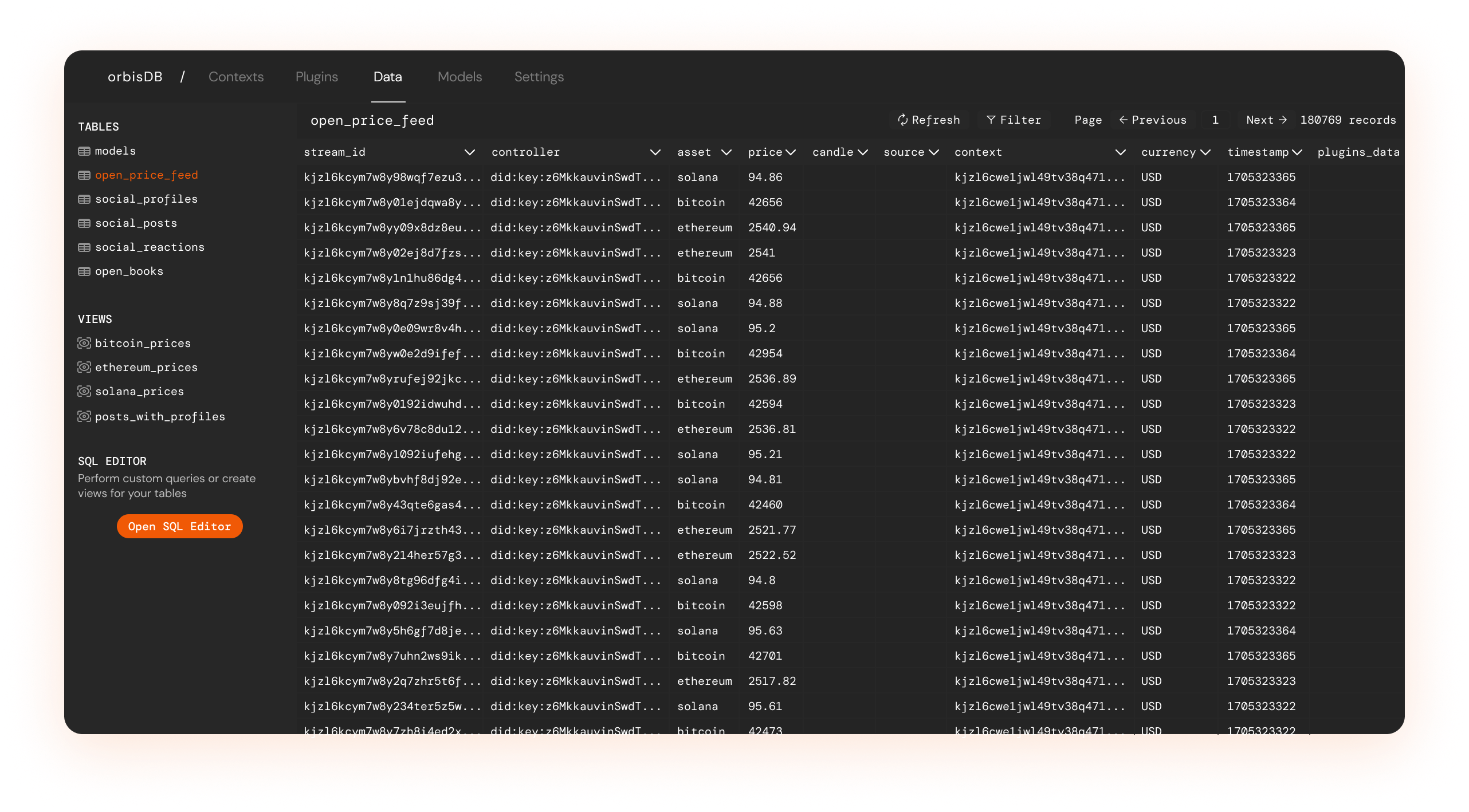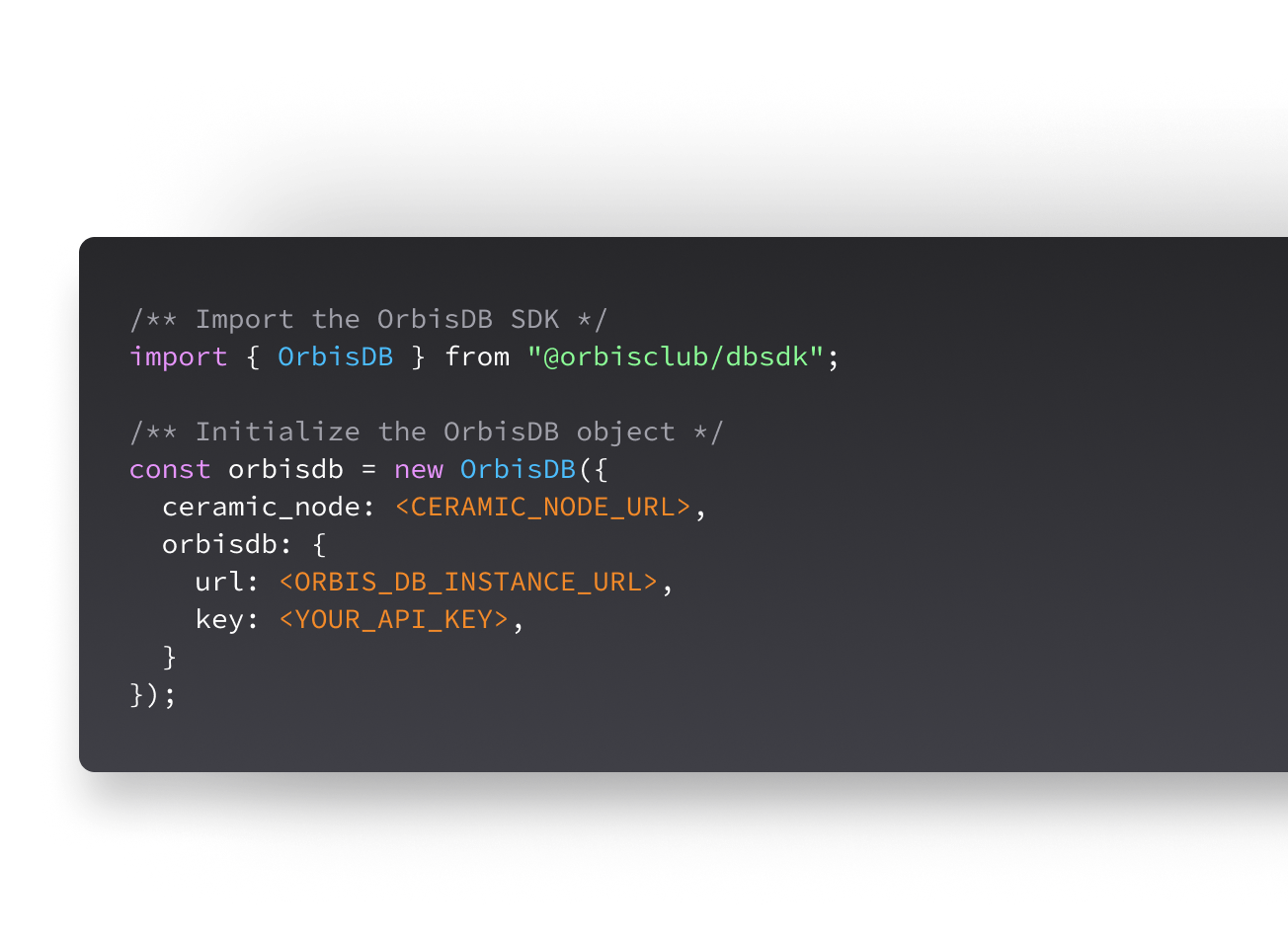Blockchain event listener
Seamlessly import onchain data from any EVM smart contract with no code, and automatically insert events in your crypto database!

OrbisDB is an open-source relational database, like Supabase but for onchain builders, providing authentication, crypto plugins, hosted service and a dashboard.

OrbisDB has been designed as a flexible distributed database.

Save time with open-source, pre-packaged plugins designed for the needs of onchain builders. Browse, install and configure from your dashboard in a few clicks.
Seamlessly import onchain data from any EVM smart contract with no code, and automatically insert events in your crypto database!

Import external data from any API or CSV files and combine it with other data sources.

Automatically convert ENS names to wallet addresses and vice versa.

Leverage Dune Analytics to seamlessly import data tables directly into your workspace with no code.

Automatically generate reputation scores and protect your app from bots with Gitcoin Passport.

It’s extremely easy to setup and use and offers all the flexibility you need, no matter your use case.

Here are some answers to the most common questions we received.
OrbisDB and OrbisDB SDK are both open-source under MIT license. As with any software, hosting an OrbisDB node comes with infrastructure costs. You’re free to use any hosting platform to set this up or you can use a managed service from a partner like Hirenodes.io
There are no gas fees for running Ceramic or OrbisDB nodes currently.
OrbisDB is powered by Ceramic, a decentralized data network.
No, OrbisDB is an alternative solution to ComposeDB, both operating at the same level in the Ceramic stack.
Yes, writes are as scalable as your Ceramic node and reads are as scalable as Postgres
Ceramic has hundreds of node operators and anyone can join by simply running their own node (a req. for OrbisDB). Anyone can listen to any topic (model) and build their own index via OrbisDB and Ceramic. All technologies used to build OrbisDB are MIT licensed (or similar).
Yes. OrbisDB has no issues storing encrypted values and server-side encryption can be implemented via Plugin
Yes, OrbisDB Plugins are open-source and anyone can build one. You can submit new Plugin ideas through our GitHub repository. All Plugins will be added to our Plugin Store (coming soon)
Orbis Social is migrating to OrbisDB, enhancing performance and offering three access modes: a shared public node, a fully customizable managed option, and a self-hosted choice with extensive customization.
Until the migration is complete, Orbis Social remains in maintenance mode, focusing on bug fixes and minor features, ensuring stability and reliability.
Ready to join the dataverse? Start your journey today.